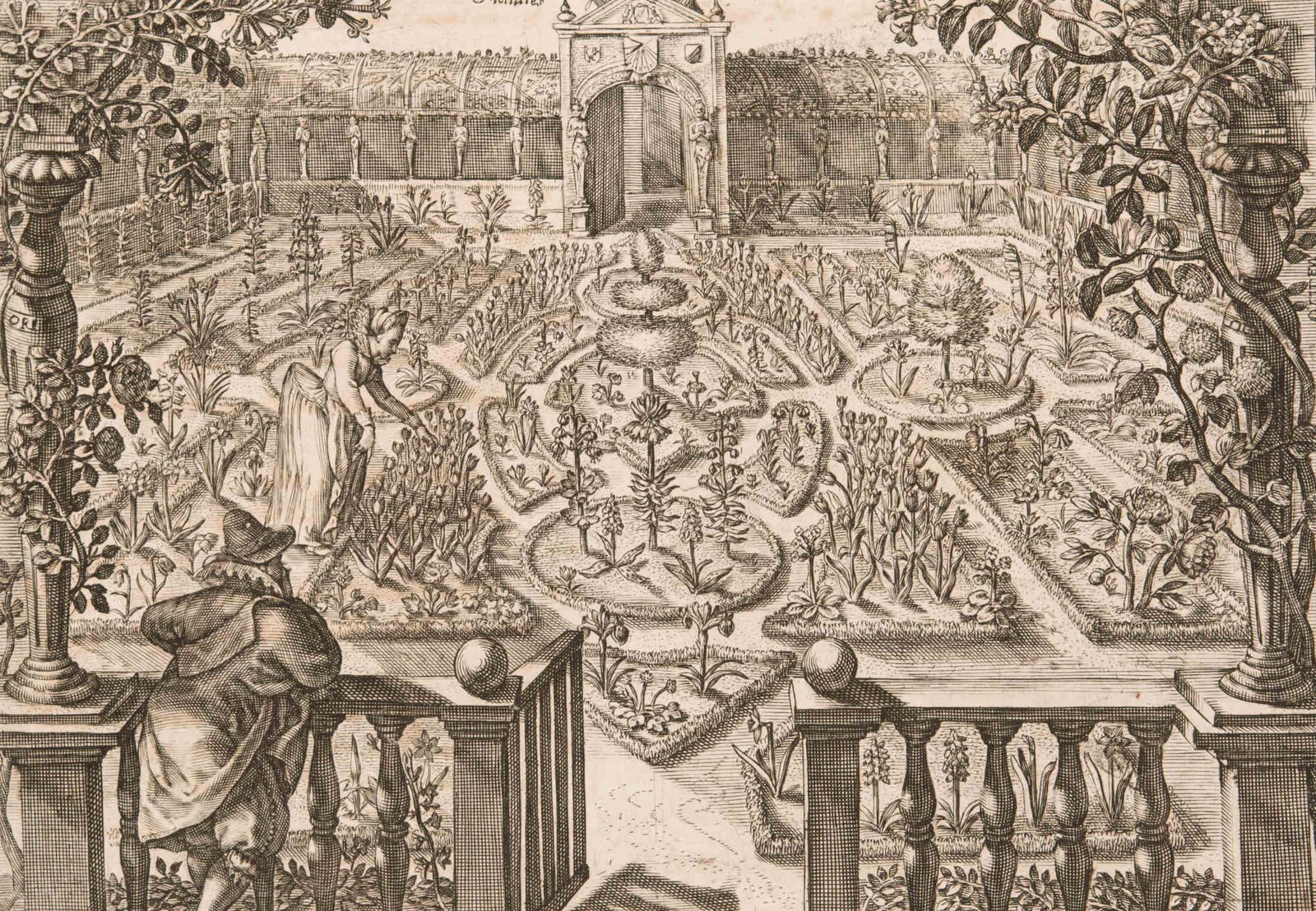
Within the botany section of the library, the oldest discernible book collection is the one that belonged to the garden prefect Giovanni Marsili. The prefects of the botanical garden certainly owned books, but these were their personal property and as such followed the fortunes of their estate after their death. During his life and his stays in Paris and London, Giovanni Marsili accumulated an important personal library, which he put up for sale in his will to obtain an income for the future sustenance of his sister and housekeeper. It was first offered to the University but the latter refused to buy it. The new prefect of the garden, Antonio Bonato, formerly librarian at the University Library of Padua, bought this collection and increased it during his lifetime until in 1834 he assigned it to the University with the obligation to open it to scholars as a library.
The Marsili collection within the new library followed the vicissitudes of the latter and was partly dismembered in the general restructuring and modernisation that affected the botanical institute and the library in the 1920s under the prefecture of Giuseppe Gola, who chose to allocate the material no longer suited to a modern institute of plant biology to other libraries, and the Biblioteca Universitaria first as a conservation library.
The Marsili collection reflected the humanistic education and interests of a university professor in the 18th century, between the Baroque era and the Enlightenment, and we can view it in its entirety by consulting its manuscript catalogue in the library.
There were manuscripts, printed texts, incunabula and editio princeps, and collections of illustrated prints.
The topics covered included the great Latin and Greek classics and those of modern thought, fundamental for centuries in the formation of a man of culture, medical works, illustrated herbals, texts of natural history, religious texts, accounts of travels and explorations...
The ex libris and manuscript notes testify to illustrious provenances and important connections such as the library of David Garrick, an illustrious Shakespearean actor, and the links with the Royal Society of London.
As a passionate bibliophile, he possessed the most valid repertoires of the time for the knowledge of the editions of Jean François Séguier and Albrecht von Haller. The collection included numerous texts in foreign languages.
A great lover of books, Marsili collected works that were preciously illustrated, such as Brunfels‘ Herbarum vivae eicones 1532, or even painted, such as Rembert Dodoens’ Florum ... historia 1569, or out of date, such as the Fasciculus de medicina of 1493. However, he was also open to new content (albeit in poor-looking texts) such as the Linnean editions or Giovanni Dalla Bona's 1769 Esortazione all'innesto del vaiolo...
A valuable painted manuscript herbarium I cinque libri di piante by the 16th-century Venetian Pietro Antonio Michiel is now in the Biblioteca Marciana where it was sent by Prefect Bonato almost immediately after the acquisition of the collection.
According to the manuscript catalogue, the collection consisted of 2520 printed works and 17 manuscripts: today, according to today's catalogue, 1023 printed works and 16 manuscripts remain in the library. The part that is not in the Historical Library of Medicine and Botany ‘Vincenzo Pinali and Giovanni Marsili’ is still kept in the University Library.
Part of the book collection has been digitised and is available in Phaidra.
The collection is available on the premises. Please contact the library for consultation.
E-mail: biblio.pinalimarsili@unipd.it
Phone: +39 049 8272134